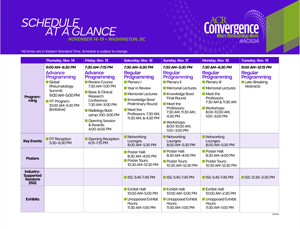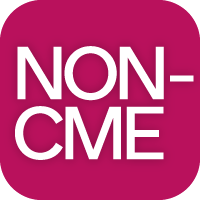Back
Poster Session C
Diversity, inclusion and racial disparities
Session: (1907–1927) Healthcare Disparities in Rheumatology Poster III
1907: Community-Engaged Curriculum Development Using Racial Justice and Biomedical Lenses to Address COVID-19 Vaccine Hesitancy in Black Individuals with Rheumatologic Conditions
Monday, November 18, 2024
10:30 AM – 12:30 PM Eastern Time
Location: Hall C
- EO
Eseosa Osaghae, MD
Northwestern University
Chicago, Illinois, United States
Abstract Poster Presenter(s)
Eseosa Osaghae1, Greta Sirek2, Tonya Roberson3, Mia Chandler4, Ariel Childs5, Monica Crespo-Bosque6, Gina Curry7, Amar Dhand8, Mary Dollear9, Alice Eggleston10, Nnenna Ezeh2, Dieufort Fleurissaint11, Denice Garrett12, Gail Granville13, Muriel Jean-Jacques1, Elena Losina2, Holly Milaeger1, Lutfiyya Muhammad14, Mary Ann Nelson15, Chisa Nosamiefan16, Bisola Ojikutu17, Neil Pillai1, Marie Jacques Toussaint18, Mary Beth Son19, Ana Valle2, Jessica Williams20, Michael York21, Karen Mancera-Cuevas22, Candace Feldman2 and rosalind Ramsey-Goldman1, 1Northwestern University, Chicago, IL, 2Brigham and Women's Hospital, Boston, MA, 3Governors State University College of Health and Human Services, University Park, IL, 4Boston Children’s Hospital, Boston, MA, 5Vital CxNs, Boston, MA, 6Boston Medical Center, Boston, MA, 7University of Chicago Pritzker School of Medicine, Chicago, IL, 8Brigham and Women’s Hospital, Boston, MA, 9Lupus Society of Illinois, Chicago, IL, 10Alliance Chicago, Chicago, IL, 11True Alliance Center, Inc, Boston, MA, 12Action for Bridgeport Community Development, Inc., Bridgeport, CT, 13Women of Courage, Inc, Boston, MA, 14Northwestern Feinberg School of Medicine, Chicago, IL, 15Mission Hill Health Movement Inc, Roxbury, MA, 16The Labalaba Foundation for Lupus Awareness and Advocacy, South Weymouth, MA, 17Harvard Medical School, Brigham and Women’s Hospital, Boston Public Health Commission,, Boston, MA, 18True Alliance Center, Inc., Boston, MA, 19Boston Children's Hospital, Brookline, MA, 20Emory School of Medicine, Atlanta, GA, 21Boston University, Boston, MA, 22National Health Council, Washington, DC
Background/Purpose: Despite the efficacy of COVID-19 vaccines and the benefits for individuals with rheumatic conditions, racial inequities in uptake persist. We initiated a trial that trains trusted community leaders (Popular Opinion Leaders, POLs) with vaccine-related educational materials to disseminate information through their social networks (e.g., friends, family, and community members) to reduce vaccine hesitancy and improve uptake. The trial focuses on Black and/or African American individuals with rheumatic conditions given known COVID-19-related inequities. POLs are randomly assigned to receive COVID-19 vaccine training through a racial justice lens or a traditional biomedical preventive care lens to determine which strategy results in better information dissemination and vaccine uptake. We aimed to use a community-engaged iterative approach to develop these curricula.
Methods: We leveraged long-standing community-academic partnerships in two U.S. cities to develop the two curricula with twenty-two racially and ethnically diverse individuals of varying backgrounds and expertise (Figure 1). Following presentation of the initial drafts, our community and academic partners reviewed these materials and provided written, individualized feedback. Over one year, we held monthly Zoom meetings with our partners across both cities to discuss feedback, which influenced further curricula drafts and pre- and post-tests for each module.
Results: Throughout this iterative process, the primary challenges encountered and addressed were concerns regarding the curricula’s constantly evolving content given updated vaccine recommendations, as well as literacy level, tone, and accessibility to a general audience (Figures 1 and 2). Two interactive virtual curricula each consisting of six modules (Table 1) were developed with pre- and post-tests for each. One curriculum used a racial justice approach, acknowledging the effects of multiple levels of racism on vaccination uptake, and highlighting the importance of the vaccine to reduce inequities by race and ethnicity. The second curriculum utilized a traditional biomedical lens; public health experts grounded COVID-19 vaccinations in preventative care strategies, highlighting the importance of healthy behaviors. The core medical content of both curricula was identical.
Conclusion: Strategies to reduce racial inequities in COVID-19 vaccine uptake must acknowledge the root causes of vaccination hesitancy and address nuanced concerns that drive vaccine avoidance amongst Black individuals. Longstanding community academic partnerships are essential to develop culturally relevant trial materials.
.jpg)
.jpg)

E. Osaghae: None; G. Sirek: None; T. Roberson: None; M. Chandler: None; A. Childs: None; M. Crespo-Bosque: None; G. Curry: None; A. Dhand: None; M. Dollear: None; A. Eggleston: None; N. Ezeh: None; D. Fleurissaint: None; D. Garrett: None; G. Granville: None; M. Jean-Jacques: None; E. Losina: None; H. Milaeger: None; L. Muhammad: None; M. Nelson: None; C. Nosamiefan: None; B. Ojikutu: None; N. Pillai: None; M. Jacques Toussaint: None; M. Son: None; A. Valle: None; J. Williams: CVS Pharmacy, Inc, 2, Lupus Research Alliance, 1, 5; M. York: None; K. Mancera-Cuevas: None; C. Feldman: Bain Capital, LP, 2, BMS Foundation, 5, Curio Bioscience, 12, My husband is a founder and will (but has not to date) receive equity., Harvard Pilgrim, 2, OM1, Inc., 2; r. Ramsey-Goldman: None.
Background/Purpose: Despite the efficacy of COVID-19 vaccines and the benefits for individuals with rheumatic conditions, racial inequities in uptake persist. We initiated a trial that trains trusted community leaders (Popular Opinion Leaders, POLs) with vaccine-related educational materials to disseminate information through their social networks (e.g., friends, family, and community members) to reduce vaccine hesitancy and improve uptake. The trial focuses on Black and/or African American individuals with rheumatic conditions given known COVID-19-related inequities. POLs are randomly assigned to receive COVID-19 vaccine training through a racial justice lens or a traditional biomedical preventive care lens to determine which strategy results in better information dissemination and vaccine uptake. We aimed to use a community-engaged iterative approach to develop these curricula.
Methods: We leveraged long-standing community-academic partnerships in two U.S. cities to develop the two curricula with twenty-two racially and ethnically diverse individuals of varying backgrounds and expertise (Figure 1). Following presentation of the initial drafts, our community and academic partners reviewed these materials and provided written, individualized feedback. Over one year, we held monthly Zoom meetings with our partners across both cities to discuss feedback, which influenced further curricula drafts and pre- and post-tests for each module.
Results: Throughout this iterative process, the primary challenges encountered and addressed were concerns regarding the curricula’s constantly evolving content given updated vaccine recommendations, as well as literacy level, tone, and accessibility to a general audience (Figures 1 and 2). Two interactive virtual curricula each consisting of six modules (Table 1) were developed with pre- and post-tests for each. One curriculum used a racial justice approach, acknowledging the effects of multiple levels of racism on vaccination uptake, and highlighting the importance of the vaccine to reduce inequities by race and ethnicity. The second curriculum utilized a traditional biomedical lens; public health experts grounded COVID-19 vaccinations in preventative care strategies, highlighting the importance of healthy behaviors. The core medical content of both curricula was identical.
Conclusion: Strategies to reduce racial inequities in COVID-19 vaccine uptake must acknowledge the root causes of vaccination hesitancy and address nuanced concerns that drive vaccine avoidance amongst Black individuals. Longstanding community academic partnerships are essential to develop culturally relevant trial materials.
.jpg)
Figure 1: Iterative Process of Curricula Development
.jpg)
Figure 2: Module Development Incorporating Feedback Regarding Tone

Table 1: Summary of Each Module
E. Osaghae: None; G. Sirek: None; T. Roberson: None; M. Chandler: None; A. Childs: None; M. Crespo-Bosque: None; G. Curry: None; A. Dhand: None; M. Dollear: None; A. Eggleston: None; N. Ezeh: None; D. Fleurissaint: None; D. Garrett: None; G. Granville: None; M. Jean-Jacques: None; E. Losina: None; H. Milaeger: None; L. Muhammad: None; M. Nelson: None; C. Nosamiefan: None; B. Ojikutu: None; N. Pillai: None; M. Jacques Toussaint: None; M. Son: None; A. Valle: None; J. Williams: CVS Pharmacy, Inc, 2, Lupus Research Alliance, 1, 5; M. York: None; K. Mancera-Cuevas: None; C. Feldman: Bain Capital, LP, 2, BMS Foundation, 5, Curio Bioscience, 12, My husband is a founder and will (but has not to date) receive equity., Harvard Pilgrim, 2, OM1, Inc., 2; r. Ramsey-Goldman: None.



